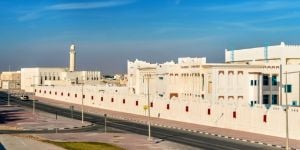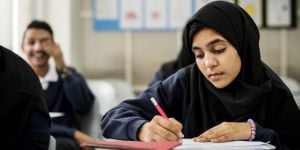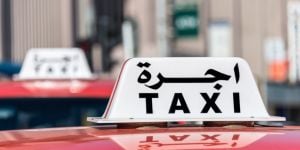There are two types of school - Qatari State and International Private and in the pre-K years there are also private nurseries that teach up to Year 1 (age 6).
Qatari State - only teach in Arabic - separate sex schools - don't know much more than that sorry.
International Private -
1. Are privately owned, teach in a variety of languages - English, spanish, french, arabic......depending on the school. If an English language school, arabic will be offered as an elective type subject as will another language (quite often French)
2. All schools are required to teach to SEC (Supreme Education Council) requirements - you might want to check out their website - schools teaching English or US curriculum/ IGCSE /IB etc required to meet requirements of the associated board that register them to allow them to teach those courses.
3. Kids are kids - there will be problems in all schools and sometimes its the luck of the draw - same in any other country including US, UK, Europe etc. It is better to look for a school that suits your child and their personality as well as your requirements, if that school doesn't work out, then move at the earliest opportunity. I would in general say most Primary schools operate OK here - but the same can not be said about the Secondary schools.
4. The 'best schools' in Doha are generally considered to be Doha College, American School, Park House, Sherborne, DESS - but I do have a friend who was happy with her son at the private place she had him up until the age of 5 (Reception year) and I've been very happy with my son's progress, class, teacher etc at Newton International (Lagoon) - he just finished Foundation 2 (Reception).
5. Pre-K is often learn through play - songs, games, puzzles, activities, stories, art n craft, playtime, park visits, excursions etc etc with increasing amounts of "traditional" type activities (working at a desk, readers, worksheets etc). This will mostly be geared towards bringing all students, from their various backgrounds, experiences etc to a point where they have common experiences so that they can confidently move into the primary years - so things like colours, shapes, numbers, alphabet and the letter sounds, simple addition/subtraction, social development (sitting still, waiting turn, playing with others), physical development (run, jump, throw a ball, hold a pencil). If you want more details I suggest you check out the British Early Years Checklist (easy to find on google) as that is pretty close to what most school systems would be doing with kids of this age
 Study in Doha
Study in Doha Schools in Qatar
Schools in Qatar Study in Qatar
Study in Qatar Student life in Doha
Student life in Doha Working in Doha
Working in Doha Buying property in Doha
Buying property in Doha Getting around Doha
Getting around Doha Sports in Doha
Sports in Doha



